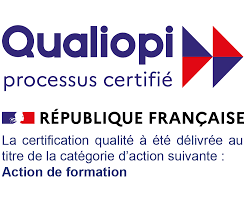Continuing education
The School of Architecture offers training courses designed to enable local authorities and professionals in architecture and urban planning to update their skills and adapt to technical, economic and regional changes.
Choose your course according to your profile, your objectives, your budget and the time you have available.
The School offers 3 types of training:
- short courses,
- long courses, most of which lead to a diploma,
- à la carte" courses, which allow you to follow certain modules of the longer courses.
List of short courses
| Cycles and courses | duration | date(s) | target audience | |
|---|---|---|---|---|
| Accessing the public procurement market | ||||
| Win local authority tenders programme |
4j | 28h | soon | architectes urbanistes paysagistes |
Building with natural materials |
||||
| Building with raw earth: resources, materials and construction systems program |
1d | 7h | soon | architects communities builders |
| Building with fibre-reinforced materials: resources, materials and construction systems programme |
1j | 7h | soon | architectes collectivités maîtres d'ouvrage |
List of long courses
Come and acquire new qualifications by following our long courses leading to a diploma, or by training to set up or develop a project management business.
| Formations | durée | inscriptions | public cible | ||
|---|---|---|---|---|---|
| DSA d'architecte-urbaniste programme |
18 months | 1300h | spring | architects landscape architects |
|
| DPEA Architecture post carbone | 1 year | 470h | spring | architects engineers |
|
| Habilitation à la maîtrise d'oeuvre en son nom propre programme |
1 year | 150h | spring | architects D.E | |
| Échelle Un, a scheme to support the creation and development of architectural firms programme |
1 year | 137h | spring | architects landscape architects engineers urban planners |
List of "à la carte" courses
If you don't have enough time for our longer courses, choose the topics that interest you to train for a few hours or a few days.
Two courses offer "à la carte" sessions: the DSA architecte-urbaniste and the Échelle Un scheme (support for the creation and development of project management companies).
| Training courses and modules | duration | date(s) | target audience | |
|---|---|---|---|---|
The DSA architecte-urbaniste training courses |
||||
| Urban ecology programme |
2,5j | 16h | mars | architects landscape architects collectivités |
| Infrastructures program |
4,5j | 31,5h | november | architects landscape architects collectivités |
| Landscape and Environment program |
3j | 21h | december | architects landscape architects collectivités |
| History and future of territories program |
3,5j | 24,5h | january | architects landscape architects collectivités |
| Actors of development and urban economy program |
2,5j | 16h | february | architects landscape architects collectivités |
Les formations de l'incubateur Échelle Un |
||||
| Creating and managing a project management company | 1day | 6h | September | creators and start-ups |
| Company financial management | 1d | 6h | October | creators and young companies |
| Building an identity as an architect | 1d | 6h | October | designers and young companies |
| Project management contract | 1,5j | 9h | november | designers and young companies |
| Agency costs and mission evaluation | 0.5d | 3h | November | designers and young companies |
| Press relations | 1d | 6h | January | creators and young companies |
| Strategies for developing your agency | 1d | 6h | February | entrepreneurs and young companies |
| From housing to product, from product to asset | 1,5j | 9h | April/May | creators and young companies |
New training courses are added to our catalog throughout the year.
Please consult this page regularly, and contact us if you would like to be notified directly of new training courses, or if you would like to suggest the creation of new ones.
Register for a training course
1- send the completed registration form by e-mail.
2- you will receive a training contract (for individuals) or a professional training agreement (for legal entities), as well as the training rules and regulations.
3- During the training course, a sign-in sheet will be signed by the trainer and each trainee, enabling attendance, lateness and absences to be monitored and controlled. A learning assessment is carried out to check that objectives have been met.
4- At the end of the course, each trainee receives a personalized certificate attesting to the completion of the course and the acquisition of skills. If the training course is financed by an OPCO, a certificate of completion will be issued.
5- At the end of the training course, an invoice will be drawn up.
6- A satisfaction survey will be sent out in the months following the training course.
Training obligation for architects
Since 2017, architects registered with the Ordre have been obliged to take a minimum of 20 hours of continuing education per year (or 60 hours over three years) and declare them on their personal space (Ordre des architectes website). They are broken down as follows:
14 hours of "structured" training: participation in continuing professional development courses run by accredited training organizations. **All fee-paying training courses offered by the School and listed on this page are "structured" training hours.
6 hours of "complementary" training: participation in colloquia, congresses, conferences, professional days (MAF), trade show visits, BIM meeting organized by CROA, distance learning (MOOC), training facilitation and HMONP juries. All events related to professional activity.
Throughout the year, the École offers conferences, round-table discussions and study days open to the public, which can enable you to accumulate "complementary" training hours.
Find out about upcoming events in l'agenda.
Financing schemes for continuing education
For self-employed or managing architects.
FIF PL
The Fonds Interprofessionnel de Formation des Professionnels Libéraux (Interprofessional Training Fund for Liberal Professionals) can help liberal professionals pay for their training. As of January 27, 2020, FIF PL is no longer able to cover training topics falling within the scope of the Personal Training Account, the CPF.
For employees - 3 new schemes
1- Skills development plan
Employers must ensure that their employees are properly adapted to their workstations, and maintain their ability to hold their jobs, particularly in light of technological developments. To this end, they must offer employees training as part of the skills development plan (formerly known as the training plan).
How to finance it
You must apply to the OPCO to which your employer contributes. OPCOs are responsible for financing apprenticeships, helping branches to develop professional certifications, and assisting SMEs to define their training needs.
Find all information on.
2 - The Personal Training Account - CPF (in French)
You are an employee, a member of a liberal profession or a self-employed person, a collaborating spouse, a temporary self-employed worker or a job seeker.
Find all information on
3- Conversion or promotion through Pro-A work-study schemes
Conversion or promotion through work-study (formerly known as the professionalisation period), also known as Pro-A, is designed to keep the least qualified employees in employment through work-study training.
Find all information on
**For public-sector employees
State and local civil servants: State civil servants (FPE) benefit from an annual credit of professional training hours, known as the Personal Training Account (CPF). These hours can be used at their own initiative. They can be used for training aimed at acquiring a diploma or developing skills as part of a career development project (mobility, promotion, professional retraining).
Find all information on
For jobseekers
You can ask your advisor to grant you an Aide Individuelle à la Formation AIF. AIF applications require the training organization to enter a quote on the Pole emploi portal.
Tax credits
A new tax break will double the amount of the tax credit for 2023 taxation, to make it easier for managers of small businesses (with fewer than 10 employees) to access training opportunities.
Find out more.
The tax credit applies to training expenses incurred by a company director that fall within the scope of the provisions on professional training set out in article L.6313-1 of the French Labor Code.
To find out more
Contact
contact
Financing for architects (French only)
OPCO EP critères de financement 2023
Documents to download
registration form
general terms and conditions
internal regulations
rib
Short course prices
350 euros net / day
Long-term training prices
according to course
Prices for modules
à la carte.
DSA : 350 euros net/day
or 175 euros net per ½ day
Ladder One: €20 net per hour.

